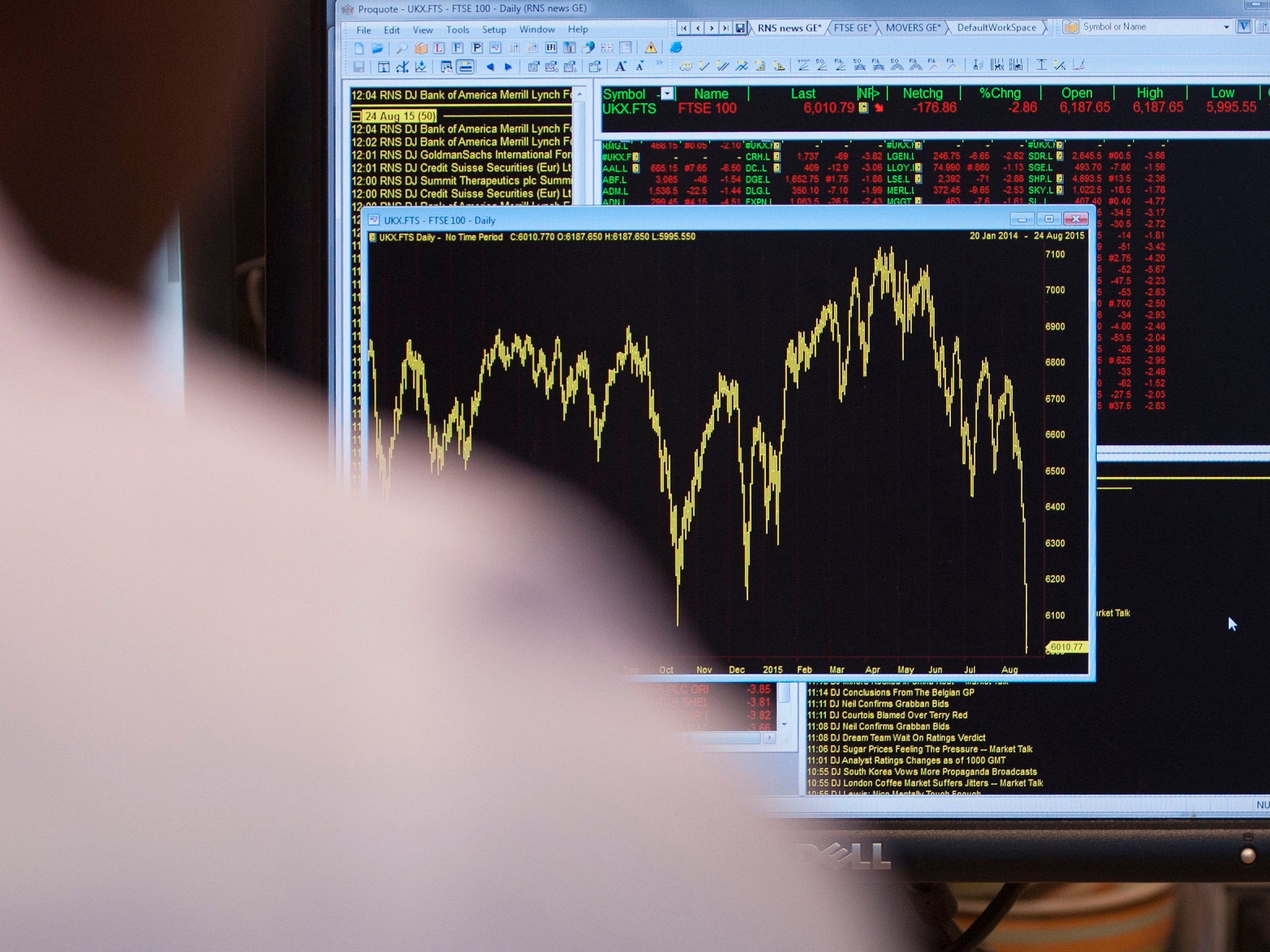These CEOs have already made more than you will in 2016 - and they're hoping you won't make a fuss
Advertising giant WPP’s CEO Sir Martin Sorrell earned a whopping £42.98 million in 2014, more than twice his nearest rival. Reportedly, a huge £274,000 of this was so his wife could accompany him on business trips

Your support helps us to tell the story
From reproductive rights to climate change to Big Tech, The Independent is on the ground when the story is developing. Whether it's investigating the financials of Elon Musk's pro-Trump PAC or producing our latest documentary, 'The A Word', which shines a light on the American women fighting for reproductive rights, we know how important it is to parse out the facts from the messaging.
At such a critical moment in US history, we need reporters on the ground. Your donation allows us to keep sending journalists to speak to both sides of the story.
The Independent is trusted by Americans across the entire political spectrum. And unlike many other quality news outlets, we choose not to lock Americans out of our reporting and analysis with paywalls. We believe quality journalism should be available to everyone, paid for by those who can afford it.
Your support makes all the difference.At a time of year when most people will be thinking of tightening their belts as they stare blankly at depleted bank balances, spare a thought for the CEOs of the UK’s FTSE 100 companies, who, in the mere two working days since the beginning of the year, have earned enough to outstrip the average UK worker’s annual wage of £27,645.
Yes, that’s right. These pillars of commerce and capitalism have been judged by their boards to be worth on average £2.6 million a year; that works out as an hourly rate of £1,200.
Welcome to Fat Cat Tuesday, so coined by the High Pay Centre, a think tank which monitors executive pay.
Depressingly, if unsurprisingly, it’s actually taken CEOs even less time to amass wealth in 2016 than last year, when it took an extra day for these corporate gods to rack up the equivalent of a full-time worker’s average annual salary.
How many of these high rollers are kicking back against government’s ‘national living wage’ proposal which will see workers guaranteed £7.20 an hour, arguing that implementing it will cost their company ‘millions’, I wonder?
So far, these fortunate few have kept quiet on the matter.
But what does the odd million matter between (very rich) friends?
Advertising giant WPP’s CEO Sir Martin Sorreli earned a whopping £42.98 million in 2014, more than twice his nearest rival. Reportedly, a huge £274,000 of this was so his wife could accompany him on business trips. Sorrell has said he’ll pay for his wife’s travel out of his own pocket next year so it doesn’t show up on company accounts. How generous of him.
Tom Pidgely, founder of housing group Berkeley, was paid £23.29 million in 2015 due to a complex renumeration deal secured during the recession which boosted his £850,000 salary by £19.8 million in share options.
Scratch the surface of the murky world of private equity companies, where the top ten CEOs earned over £1.3 billion between them in 2013, and even WPP’s Sorrell’s pay package pales in comparison.
The executive pay gap has increased exponentially in the past 50 years. Where CEOs earned on average 20 times the wage of their average worker in the 1960s, now the ratio is closer to 265 times that of the average worker.
Regulators in the US now demand that companies expose the pay gap between workers and their bosses, a move which campaigners are arguing for in the UK.
The HPC says that over-payment at the top is “fuelling distrust of business, at a time when business needs to demonstrate that it is part of the solution to harsh times and squeezed incomes”.
But Adam Smith Institute director Bowman has dismissed the HPC’s findings as ‘pub economics’, giving seven reasons why people ‘shouldn’t care’ about higher pay, including that critics of the widening pay gap have not said how much CEOs should be paid.
This is a man who argues that CEOs ‘might’ be worth more to a company than they were in the 1960’s hence the need to for their pay ratio to have increased exponentially.
So far, so unequal.
And yet, as the pay gap widens ever more, David Cameron continues to bleat out his mantra that ‘we’re all in this together’ - I’d be creased double in mirth at the fantasy of this statement if the situation wasn’t so depressingly grim.
Meanwhile on Twitter, thousands of pictures of overweight (or fluffy) felines have swamped tweets bearing the FatCatTuesday hashtag.
Please, let’s campaign for greater wage equality and not get distracted by snaps of slack-waisted moggies. After all, that’s what the fat cats would want.
This article was updated on 6th January to remove an inaccurate reference to Sam Bowman's views on CEO pay
Join our commenting forum
Join thought-provoking conversations, follow other Independent readers and see their replies
Comments